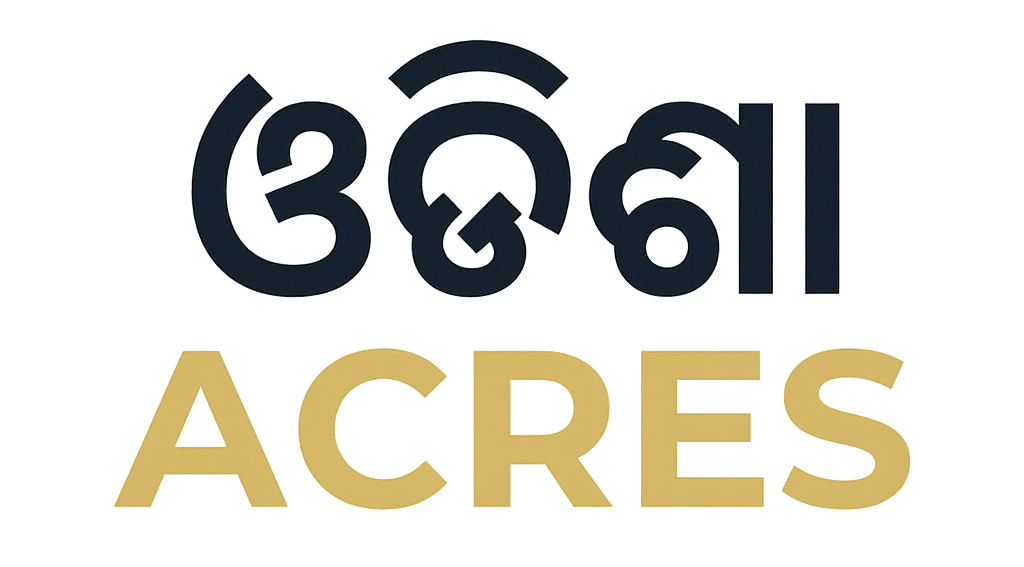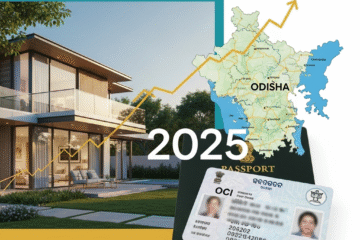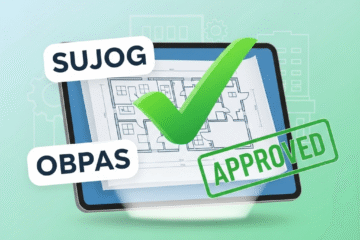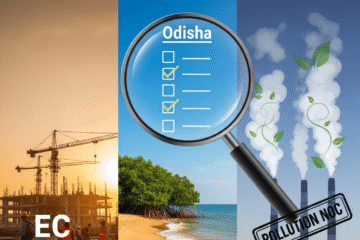
NRI / OCI Buying Property in Odisha: Easy 2025 Guide
🏡 What can you actually buy?
If you are an NRI (Non-Resident Indian) or OCI (Overseas Citizen of India):
✅ You can buy:
- Residential property (flats, houses, apartments).
- Commercial property (shops, offices, plots in approved areas).
❌ You cannot buy:
- Agricultural land.
- Plantation land.
- Farmhouses.
👉 If someone offers you farmland or a farmhouse to buy in Odisha, it’s not legally allowed. You can only inherit these types of land, not purchase them.
💰 How can you pay for property in India?
You must use Indian banking channels — no cash, no traveller’s cheques.
Here’s how most NRIs/OCIs pay:
- Send money from abroad directly into India through bank transfer (your bank abroad → Indian bank).
- Use your Indian bank accounts:
- NRE account = Non-Resident External account → you put in foreign money here (USD, GBP, AED, etc.), and it’s kept in INR. Money can be sent back abroad later.
- NRO account = Non-Resident Ordinary account → this is for money earned inside India (like rent, pension, deposits). Money here can also be sent abroad, but with limits and more paperwork.
- FCNR account = Foreign Currency account in India → deposits kept in your foreign currency.
👉 In short:
- Use NRE for sending money into India from abroad.
- Use NRO if the money is already in India.
- Always keep the bank’s advice/FIRC slip as proof (important later for taking money out of India).
🖊️ What if you can’t come to Odisha? (Power of Attorney – PoA)
You don’t need to fly down every time. You can give someone you trust in India a Power of Attorney (PoA) so they can sign documents for you.
Steps:
- Sign the PoA in your country before the Indian Embassy/Consulate or a local Notary.
- Get it attested (embassy stamp) or apostilled (international stamp of authenticity).
- Send it to Odisha → your lawyer/agent will register it at the Sub-Registrar office before using it.
⚠️ Important:
- Use a PoA without possession (cheaper and safer).
- A PoA with possession is treated like an ownership transfer — stamp duty is higher (5% + 2% fee in Odisha).
🧾 What happens on registration day in Odisha?
- You (or your PoA holder) go to the Sub-Registrar’s Office.
- Carry: ID proof, sale deed draft, stamp duty receipt, and slot booking details.
- Odisha now uses e-Registration:
- Draft deed online.
- Pay stamp duty/registration fees online.
- On the day → biometric thumbprint, photo, and signatures are taken.
- After registration, the land record (RoR – Record of Rights) is updated through mutation (done online via Tahasil).
💸 Taxes when buying
Case 1: Seller is Resident Indian
- If the property price is ₹50 lakh or more, buyer must cut 1% TDS (tax) before paying the seller.
- This is deposited online using Form 26QB.
Case 2: Seller is also NRI/OCI
- Different rule applies → Section 195.
- TDS here is not 1%. Instead, tax is deducted as per capital gains (20% or more, depending on type of gain + surcharge/cess).
- The seller can apply for a lower TDS certificate from the Income Tax Department to reduce this.
👉 Buyer must confirm seller’s residency status before deciding which rule applies.
🌍 After purchase: rent, resale & sending money abroad
- Rental income: Can be deposited in your NRO account. After paying Indian tax, you can remit it abroad.
- Selling property later:
- You can send back up to USD 1 million per financial year (approx ₹8.3 crore) from your NRO account after providing tax proofs and CA certificate.
- If you bought using foreign money (NRE), you can also repatriate sale proceeds, but you’ll need the old FIRC/bank records.
📋 Buyer’s simple checklist
- ✅ Check RoR (Record of Rights) → land must be Gharabari (residential), not agricultural.
- ✅ Get an Encumbrance Certificate → ensures no loans/mortgages on the property.
- ✅ If new construction, check building plan approval on SUJOG/OBPAS and ask for Occupancy Certificate after completion.
- ✅ Pay via NRE/NRO account or foreign remittance (never cash).
- ✅ Deduct TDS correctly (1% or Sec. 195) depending on seller’s status.
- ✅ Keep all proofs (bank advices, FIRCs, sale deed, mutation papers).
❓ FAQs
Q1. Can I, as an NRI, buy agricultural land in Odisha?
No. You can only buy residential or commercial property. Agricultural land is restricted.
Q2. What’s the difference between NRE and NRO accounts?
- NRE = for money you bring from abroad; freely repatriable.
- NRO = for income earned in India (rent, pension, deposits). Limited repatriation with paperwork.
Q3. If I live in Dubai, can I buy a flat in Bhubaneswar without visiting India?
Yes. Execute a PoA in UAE (at Consulate or Notary), apostille/attest it, and get it registered in Odisha.
Q4. What’s mutation?
It’s updating the land record (RoR) in your name after registration. In Odisha, this is online at the Tahasil office.
Q5. How much money can I send abroad after selling my property?
Up to USD 1 million per financial year from NRO account, after paying Indian taxes and filing CA certificate.
Q6. Do I need PAN card for buying?
Yes, for property registration, TDS, and bank compliance, you should have a PAN.
✅ TL;DR (Quick Summary)
- NRIs/OCIs can buy residential & commercial, not agricultural/farmhouse.
- Pay only via bank channels (NRE/NRO/foreign remittance).
- Use PoA if you can’t come; get it attested/apostilled + registered in Odisha.
- Deduct TDS properly (1% for resident sellers, Sec.195 rules for NRI sellers).
- You can send back up to USD 1M/year from India after sale, with tax compliance.
- Always verify land records (RoR), Encumbrance Certificate, and plan approvals before buying.




